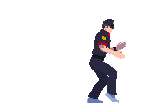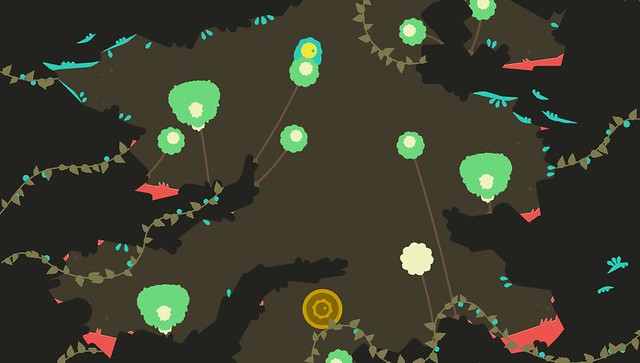ANYWAY, what I really wanted to write about is how Ghost Trick basically addressed all my complaints in my post about what visual novels should learn from comics. Short recap: Things that bug the heck out of me in visual novels are 1) information redundant to the artwork, 2) artwork that doesn't pack much information in it, and 3) a slow pace. Ghost Trick avoided all of these. The narration didn't tell me things I already knew from visual information (though it did review information I needed to make sense of the plot). Characters had unique animations that brought out their personalities:
The game ended about where I was beginning to tire of the mechanics, and had a satisfying, if ridiculous, ending. It was really fun to see a game execute parts of visual novel style in such an excellent way. Some might argue that it's not really a visual novel, in which case I might just have to admit that I don't particularly like visual novels as a genre.
I feel bad about disliking most visual novels... but I think if I'm going to spend all that time reading on a bright screen I want to have some interaction with the story. If there isn't some kind of gameplay (like the puzzle sections in Ghost Trick or 999), or a branching storyline, then I might as well be reading a comic book, in my mind.
I started playing around with Ren'Py, the python-based visual novel engine, and immediately I wanted to learn about things like making choices and keeping track of statistics. I think it's more about how the elements of visual novels combine with others that make it interesting (I find reading scripts for plays terribly boring, but generally enjoy seeing them... I see visual novels as a game that's missing vital parts). On the other hand, I can see how for a budding designer, learning one or two parts of a game at a time could be really useful, fun, and instructive. Feel free to share about why I shouldn't give up on visual novels!






